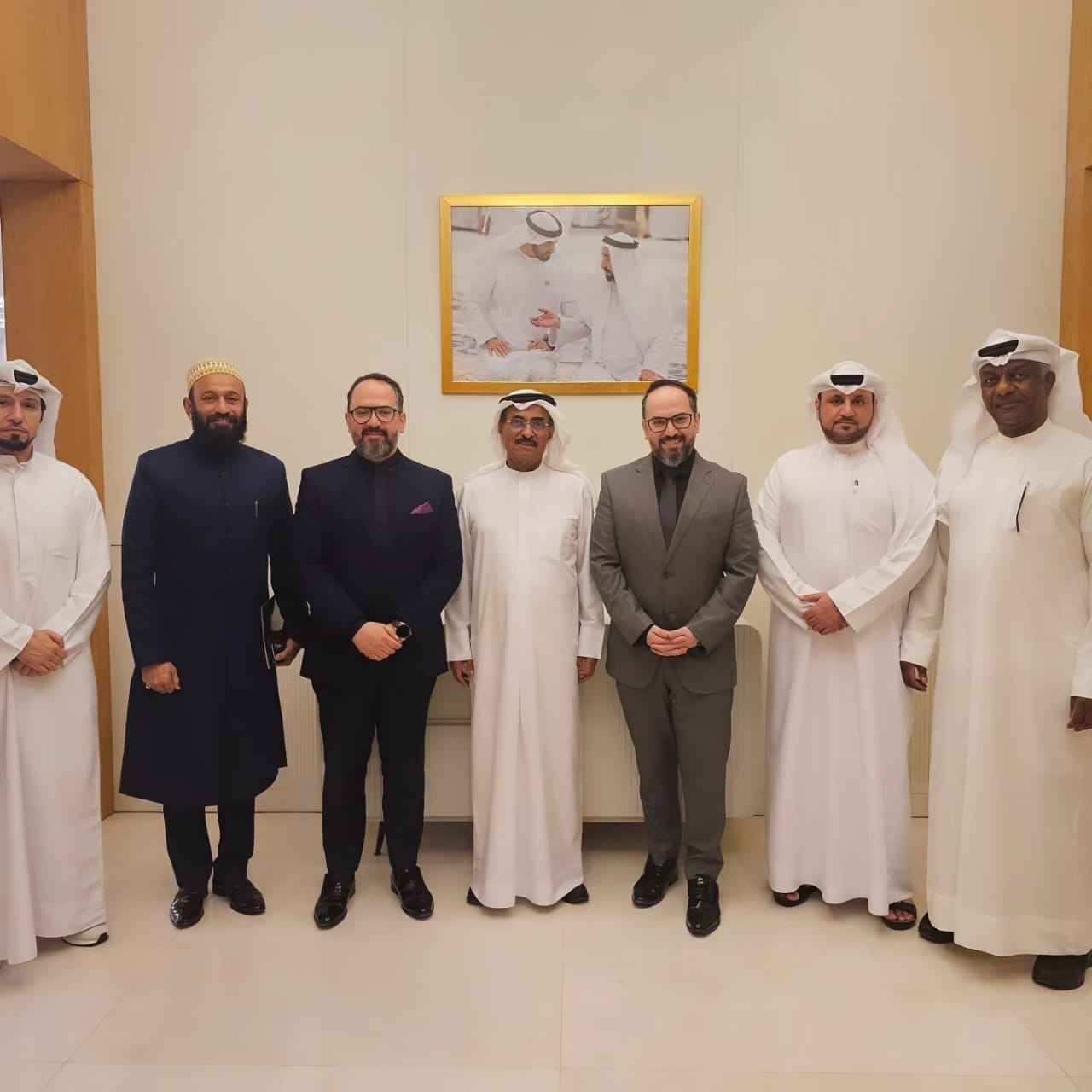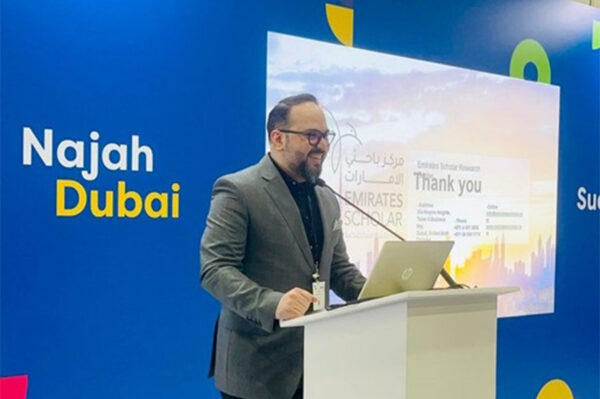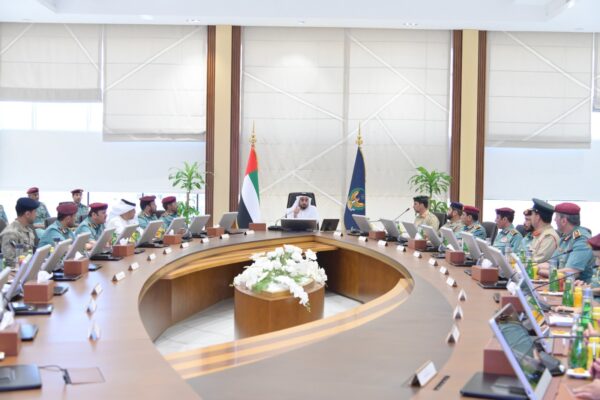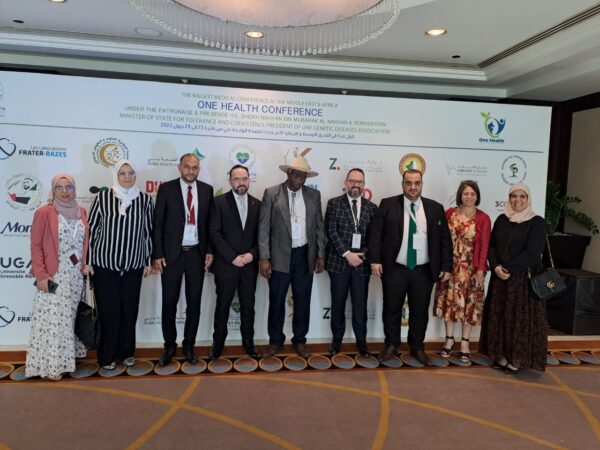The “Gulf” Ramadan Council Hosted by Abdullah Belhaif Al Nuaimi

Dr. Abdullah Belhaif Al Nuaimi, Chairman of the Consultative Council for the Emirate of Sharjah, Chairman of the Board of Trustees for the Emirates Scholars Center, revealed 5 influential challenges hindering the progress of scientific research in societies, emphasizing that research work has the potential and capabilities to put an end to many current and future crises in various fields.
Belhaif presented 10 important recommendations, carrying remedies and solutions for the obstacles facing scientific research, in addition to its ability to turn challenges into opportunities to achieve quality performance and accuracy in research output.
This took place during the Ramadan Council organized by Dr. Abdullah Belhaif Al Nuaimi, where “Al Khaleej” was hosted, along with a number of experts, academics, researchers, and university representatives. The focus was on the most pressing issues in the research field and the impacts of research in various vital domains, including the environment, climate change, energy, and emerging diseases that have recently emerged globally.
Important Challenges
Dr. Abdullah Belhaif focused on three important challenges. The first one addresses universities lacking a selection process in research topics, along with the community’s need for the results and impacts of research. Moreover, currently available research tends to be personalized rather than serving the primary purpose of scientific research, which is to benefit society in its various sectors.
He noted that most professors in universities are primarily concerned with promotion and improving their academic status based on a certain number of research works published in international scientific journals. While this is their rightful pursuit, society also has rights to benefit from the experiences and minds of those working in universities.
Furthermore, he highlighted that funding often goes towards university professors’ research, neglecting the potential benefits of students’ knowledge-based scientific research, which effectively contributes to the advancement of professors as well. He emphasized that scientific research in this manner will not move us forward even one step, presenting a clear and explicit challenge that deserves investigation and remedy.
Support and Funding
Abdullah Belhaif stated that the second challenge facing scientific research lies in knowledge dissemination. The global community lacks a unified platform for scientific research, leading to scattered efforts and unavailable results. Additionally, there is a gap between communities in research paths, with a complete absence of globally shared scientific research, despite researchers’ capabilities being unmatched in addressing the crises faced by humanity in all fields. Moreover, there are potentials that offer solutions and remedies for all the issues raised.
He emphasized that the third challenge is the most crucial, as it is closely related to support and funding, which have become excessively limited in most societies. Some governments lack the capacity to provide support, while university budgets do not have sufficient allocations to enable scientific research paths. The private sector, especially the industrial sector, finds scientific research to be an additional burden on its budgets, despite being one of the sectors most in need of scientific research interventions.
Participants in the council discussed other challenges, highlighting that the fourth challenge lies in the scarcity of specialized scientific publication outlets locally, coupled with the limited role of international publications that charge exorbitant fees for publication, along with the challenge of slow publication, hindering the achievement of the desired positive results. They explained that selecting research topics outside of one’s specialization poses a new challenge that deserves study, analysis, alignment, and remedy.
Paving the Way
The council outlined 10 recommendations to pave the way for scientific research paths and enable them in various communities. Dr. Abdullah Belhaif emphasized that the first solution lies in regulating cognitive research and establishing fundamental rules for scientific and cognitive research. Law serves as a tool to achieve discipline and ensure compliance, as it is designed to regulate the pace of work in all fields.
He further stated that enhancing research funding is one of the most effective interventions. Increased government and private funding for scientific research stimulates innovation, discovery, and creativity in finding solutions to pressing issues. Additionally, he stressed the importance of providing infrastructure, as investment in advanced infrastructure such as laboratories and research facilities constitutes genuine empowerment for researchers to conduct high-quality research.
International Collaboration
Abdullah Belhaif emphasized the importance of enhancing international cooperation in scientific research and building partnerships with universities and international research institutions to exchange knowledge, experiences, and collaborate on effective solutions to current crises, especially those related to energy, environment, climate change, health, and transformations in vital sectors that address the actual needs of societies.
He stressed the importance of directing research towards practical solutions and encouraging research aimed at solving current problems in societies and achieving sustainable development. This includes encouraging technological applications to support research aimed at developing new technologies and innovations that contribute to improving the quality of life and enhancing economic development. He also emphasized the importance of supporting young researchers by providing them with training and funding programs to develop their skills, enhance their capabilities, and utilize their potentials in scientific research.
Belhaif also highlighted the importance of promoting a research culture and encouraging paths of research education, discovery, and analysis through organizing purposeful conferences and workshops and directly disseminating scientific knowledge according to systematic plans and clear objectives. Additionally, he stressed the urgent need to stimulate interaction with the industrial sector to enhance collaboration between academic researchers and industry to translate academic research into practical products and services.
The structure of the research system and personnel selection
Participants in the council stressed the importance of diversifying solutions to encourage scientific publication. They emphasized the need to provide meaningful incentives to enhance the status of researchers and motivate them to publish their research findings in peer-reviewed scientific journals and participate in conferences.
They highlighted the importance of reevaluating the structure of the research system and the necessity of selecting personnel responsible for scientific research operations. They emphasized the need for a new methodology to regulate and streamline the work processes of university professors, providing them with the opportunity to dedicate themselves to conducting purposeful and impactful practical research. Care and precision in selecting research topics were also emphasized, ensuring that they benefit communities rather than individuals.
Furthermore, they noted that enhancing public awareness is one of the most effective solutions to overcome the challenges facing scientific research globally, regionally, and internationally. Educating the community about the importance of scientific research plays a vital role in comprehensive development and achieving social and economic progress.





